Marcia Thornton Jones's Blog, page 158
January 12, 2016
Epihanies Big and Small by Darlene Beck Jacobson
Ideas are everywhere. We writers often discover an idea for a story in a most unlikely place. In the shower. On a walk. Cleaning out a closet. Discovering a forgotten family heirloom. Anyone with an over active imagination can come up with an idea for a story.
Ideas are a dime a dozen, as the saying goes. Just ask any would-be inventor.
Since well before the industrial age, people have come up with original gadgets they hoped would do things better. Or make life easier. Provide fun or enhance our lives. There are hundreds of thousands of patents for new and improved things. But on the way to these product successes, just as many "flops" go unrecorded.
So it goes with our writing ideas. That idea that excited us before we went to bed, turned out to be like so many stories already written, once examined under the light of day. The friendship story? Done. Coming of age? Also done. And done. So many ideas seem to be anything but original.
My point? My own epiphany: As someone has often said, when it comes to ideas, there are no new ones. EVERY story has been told.
Except. OUR OWN STORY. Our own telling of the universal truths. Our own spin on the classic tale. We authors bring a unique experience and perspective to an idea. HOW we tell the story is what makes the difference.
Ideas are a dime a dozen, as the saying goes. Just ask any would-be inventor.
Since well before the industrial age, people have come up with original gadgets they hoped would do things better. Or make life easier. Provide fun or enhance our lives. There are hundreds of thousands of patents for new and improved things. But on the way to these product successes, just as many "flops" go unrecorded.
So it goes with our writing ideas. That idea that excited us before we went to bed, turned out to be like so many stories already written, once examined under the light of day. The friendship story? Done. Coming of age? Also done. And done. So many ideas seem to be anything but original.
My point? My own epiphany: As someone has often said, when it comes to ideas, there are no new ones. EVERY story has been told.
Except. OUR OWN STORY. Our own telling of the universal truths. Our own spin on the classic tale. We authors bring a unique experience and perspective to an idea. HOW we tell the story is what makes the difference.
Published on January 12, 2016 06:00
January 11, 2016
Who's In Control?
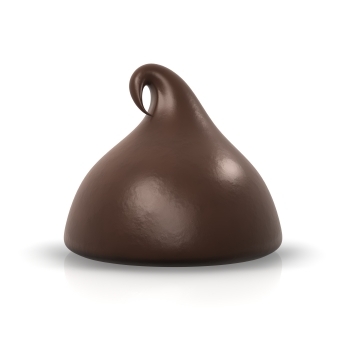 from Jody Feldman
from Jody FeldmanI do not consciously control what, for me, is the sweetest morsel of the writing process. And the preceding statement may be true on two levels. I do not know the if I am capable of controlling it and I've learned not to try. Let me explain with an example.
I’ve just started writing something completely new. By new, I mean, as of this posting, 131–current-words new. The idea came to me in 2011, and I started playing around with it just before I received the green light to write two more Gollywhopper Games books. But that ‘s another story for another day. The point is, for the last month, before I ever thought about writing the first sentence, I hearkened back to what’s been my most successful process. I’ve taken much time and brain power to draw together some of the larger overall ideas that have already made this a book I am very excited about.
Rewind to, oh, four months or more before I’d even remembered I had this story in my idea files. I was just sitting there thinking about who-knows-what when there came to me the thought of using a certain object that could get my characters out of trouble. So as not to include potential spoilers, let’s say this element was a monkey wrench. I was intrigued, and it humored me, but I wasn’t working on anything, whatsoever, where my characters might need a monkey wrench.
Fast forward to this past Thursday when I was researching what I thought might be the perfect occupation for an important adult character. Let’s say, I had decided he’d be involved in the trucking business. I know nothing about the trucking business, so I started to do some research. One website led to another and another then to one about a toolmaker. Suddenly, that occupation seemed to work so much better with the plot I’d been developing, and then ...

I remembered the monkey wrench. Not only had a couple pieces clinked into place, but, together, they put the plot in total synch. And such connections form that sweetest morsel of the writing process.
Is all that the result of intuitive perception? Some otherworldly muse? Hard work?
I don’t know. And does it matter?
What do you think?
P.S. You now have until the end of January to enter for a chance to win for your school (no matter if you’re an educator or parent or otherwise connected to a school) a FREE Skype or school visit. Details in last month’s post; even more in the contest section here.
Published on January 11, 2016 03:30
January 10, 2016
January Theme: MIRROR MOMENTSBy Marcia Thornton JonesI lo...
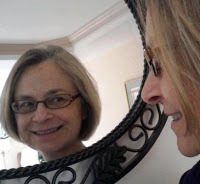 January Theme: MIRROR MOMENTSBy Marcia Thornton Jones
January Theme: MIRROR MOMENTSBy Marcia Thornton JonesI love it when something clicks. That sudden flash of insight. The sense of ah-ha. It’s as if someone flipped a switch and aligned my brain’s railroad tracks. Unfortunately, those revelations don’t usually happen until after the adrenaline rush of a situation has subsided. Then, what could’ve been ah-ha revelations become what-I-shouldn’t-have-said regrets. I need to learn to pause in order to provide space and time for epiphanies to surface. To take deep breaths, count to ten, meditate, or just take a good look at myself in the mirror every so often.
The same is true for my story characters.
James Scott Bell, in WRITE YOUR NOVEL FROM THE MIDDLE: A NEW APPROACH FOR PLOTTERS, PANTSERS AND EVERYONE IN BETWEEN, suggests plotting stories by using a character’s midpoint epiphany. A moment smack dab in the middle of the story during which the main character pauses to take a good long look at herself. When she considers the kind of person she is and the odds against her. Where she question whether she has what it takes to survive—or not. Bell calls this midpoint reflection the mirror moment, noting that it is different than the traditional definition of a midpoint plot event.
“Virtually all books on the craft approach it as another ‘plot’ point. Something external happens that changes the course of the story. But what I detect is a character point, something internal, which has the added benefit of bonding audience and character on a deeper level.”(page 25)
According to Bell, this single character epiphany creates a natural structure for outlining character transformation.
“Whether you are a plotter or pantser, just thinking about what the ‘look in the mirror’ might reveal will help you bring depth and cohesion to your novel.“That’s why it’s a magic moment.“And that’s a key word, moment. The true midpoint is not a scene. It’s a moment within a scene. It’s like the earth’s core. The true center. Find it in your novel, and everything will radiate from it.” (page 28)
Reading Bell’s gem of a book resulted in my own epiphany. By playing around with possible mirror moments using my character’s own words, I can get a better handle on her transformative growth. Once I know how she feels about herself in the midst of her struggle, I can not only develop scenes that lead to a satisfying conclusion, but I can also work backwards to strengthen the first half of the book.
If you’re interested in learning more about plotting using the mirror moment, I highly recommend reading Bell’s WRITE YOUR NOVEL FROM THE MIDDLE: A NEW APPROACH FOR PLOTTERS, PANTSERS AND EVERYONE IN BETWEEN. As for me, I plan to brainstorm mirror moment epiphanies for my character. And maybe practice a little meditation. And remembering to count to ten. Or at least try to take a deep breath before blurting something I’ll later regret!
Published on January 10, 2016 06:07
January 8, 2016
Eureka! An Epiphany! -- by Jane Kelley
The story probably isn't true. There's some debate about the validity of the science. But that doesn't matter. Chances are when you saw the word "epiphany," you thought of that Greek guy who made a great discovery in his bathtub and ran naked through the streets shouting "EUREKA!"
(For the record, his name was Archimedes. He was a mathematician who was given the job of finding out whether the king's crown was pure gold. His insight was that, just as his body displaced the bathwater to reveal its true weight, so would a crown dunked in water.)
Now Archimedes figured out plenty of other things––including an approximate value for pi. But we remember him best for that Eureka moment. Why?
Epiphany means a revelatory manifestation. An inspiration so vivid, so amazing that you feel like you're in the presence of the divine. An idea that transports you and makes you feel like running naked through the streets.
Of course, having the actual insight is crucial. As Deborah Lytton pointed out in her post, our characters need to have those revelations too. But if we want to give those moments maximum impact. If we want people to remember them, then we need to make them manifest. Make them transport us from our warm baths.
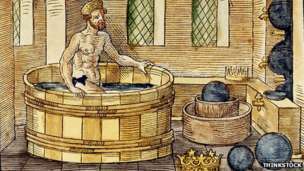
Then we can cry, Eureka! Because we really will have found it.
(For the record, his name was Archimedes. He was a mathematician who was given the job of finding out whether the king's crown was pure gold. His insight was that, just as his body displaced the bathwater to reveal its true weight, so would a crown dunked in water.)
Now Archimedes figured out plenty of other things––including an approximate value for pi. But we remember him best for that Eureka moment. Why?
Epiphany means a revelatory manifestation. An inspiration so vivid, so amazing that you feel like you're in the presence of the divine. An idea that transports you and makes you feel like running naked through the streets.
Of course, having the actual insight is crucial. As Deborah Lytton pointed out in her post, our characters need to have those revelations too. But if we want to give those moments maximum impact. If we want people to remember them, then we need to make them manifest. Make them transport us from our warm baths.

Then we can cry, Eureka! Because we really will have found it.
Published on January 08, 2016 03:00
January 7, 2016
Guest Post: Perspective and Intention + GIVEAWAY! (Danika Dinsmore)
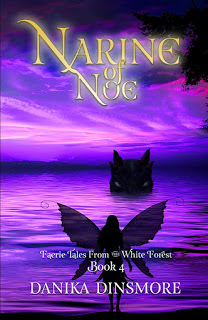 First off, I would like to thank Holly Schindler and the other folks at Smack Dab in the Middle for hosting me on the first stop of my Narine of Noe blog tour.
First off, I would like to thank Holly Schindler and the other folks at Smack Dab in the Middle for hosting me on the first stop of my Narine of Noe blog tour. If you aren’t familiar with my blog, I enjoy using real life events, lessons, stories, etc as jumping off points for writing exercises. Life, as we all know it, can be stranger than fiction. But more than that, if, as a writer, I examine closely what it means to be human, where the messiness of being alive and functioning happens, it helps me to develop “believable” characters and situations, even while writing fantasy in a world where there are no humans!
Due to recent events in my life I have been thinking a lot about both perspective and intention. My husband is a conflict resolution specialist. He once said, “The source of conflict is any time something that we care about is affected in some way. A consistent contributing factor to conflict is a misattribution of intent.”
If we look at the world (and the people in it) as a place that intends to do us harm, and the people around us as people looking to be cruel and hurtful, then we will often perceive their actions as cruel and hurtful no matter what they do or say. In my house we call this “looking for evidence.” And if we are really stuck in our story, even when someone tries to share their true intentions, we often don’t believe them. The evidence speaks for itself, right?
(NOTE: this is not to trivialize nor ignore situations in which people DO live in places where they are literally physically at risk.)
As a writer, this idea of misattribution of intent is useful for plot and character development. I know that I personally hate it when my intentions are questioned or misinterpreted. How can I prove what my intentions were? All the other person has is my word and when someone doesn’t trust my intent, it’s a difficult space from which to untangle a conflict.
As a reader, I find that I greatly sympathize with characters whose intentions are misunderstood. Especially when the intentions are good-hearted and sincere. For example, your character could give a heart-felt gift to someone that they interpret as rubbing something in their face, teasing them, etc. and the cycle of hurt begins.
Another use of this idea in storytelling is to place an innocent into a dangerous situation (or humorous one, for that matter) in which they believe everyone’s intentions are good when they are actually not.
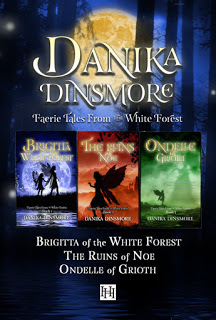 In Narine of Noe, I take both of these ideas to the extreme. Narine is fairly innocent. She has no reason not to trust the intentions of those around her, in particular her best friend and the wise World Sages. However, the energetic balance of the world shifts and, save for Narine and a few others who were protected, no one trusts anyone’s intentions any longer. The miscommunication and accusations grow until there are disastrous results. Most heart-breaking is that her own best friend now sees her intentions as selfish, vindictive, scheming – and no matter what Narine says, she cannot convince her otherwise.
In Narine of Noe, I take both of these ideas to the extreme. Narine is fairly innocent. She has no reason not to trust the intentions of those around her, in particular her best friend and the wise World Sages. However, the energetic balance of the world shifts and, save for Narine and a few others who were protected, no one trusts anyone’s intentions any longer. The miscommunication and accusations grow until there are disastrous results. Most heart-breaking is that her own best friend now sees her intentions as selfish, vindictive, scheming – and no matter what Narine says, she cannot convince her otherwise.So, here’s a fun writing exercise. Take a scene you have already written and play with both the intentions of each character AND the misinterpretation of those intentions. Through a certain lens, have a character see the world as completely against her and each statement or action as proof. Can love look like cruelty? Can generosity appear as mocking? Can an innocent question appear as accusation or blame? What kind of tension and conflict can you create using misunderstanding of intention?
And if you don’t have a scene try out this timed writing exercise:
1) Set your timer for 5-7 minutes. Using the start line below, write without stopping and without editing. If you get stuck, just write about being stuck (gosh, I’m stuck, my mind feels like a piece of cheese…) OR just keep writing the start line over with a different response each time.
Start line: My characters had such good intentions when he/she . . .
2) Set your timer for 5-7 minutes. Using one of the start lines below, write without stopping and without editing.
Start line: My character was completely misunderstood when she . . .
3) Set your timer for 7-10 minutes. Using one of the start lines below, write without stopping and without editing.
Start line: Feeling misunderstood, my character builds a wall around herself that looks like . . .
Happy writing and Happy New Year!
~ Anyone interested in writing a review for any of Books 1-3 can contact Danika at danika.dinsmore@gmail.com for a free ebook copy of the omnibus edition. Just mention you saw the offer on this site.
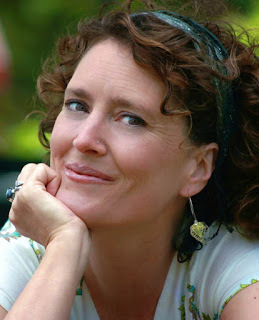 Danika Dinsmore is an award-winning author, performance artist, and educator. Over the past 25 years she has developed content for the page, stage, screen, and web. Danika currently works and plays in speculative fiction with an emphasis on juvenile & young adult literature. Inspired by her children’s fantasy adventure series FAERIE TALES FROM THE WHITE FOREST, she developed her interactive Imaginary Worlds Tours, performing and teaching world-building & creative writing at schools, conferences, and festivals across North America.
Danika Dinsmore is an award-winning author, performance artist, and educator. Over the past 25 years she has developed content for the page, stage, screen, and web. Danika currently works and plays in speculative fiction with an emphasis on juvenile & young adult literature. Inspired by her children’s fantasy adventure series FAERIE TALES FROM THE WHITE FOREST, she developed her interactive Imaginary Worlds Tours, performing and teaching world-building & creative writing at schools, conferences, and festivals across North America. She writes about the creative life and posts exercises on her blog: danikadinsmore.com and shoots her mouth off on Twitter @danika_dinsmore
Also, Danika is hosting a giveaway of a print copy of Narine of Noe! Just fill out the form below; giveaway ends January 21.
a Rafflecopter giveaway
Published on January 07, 2016 05:00
January 5, 2016
Writing Epiphanies by Deborah Lytton - January Theme
When I consider epiphanies and how they relate to my writing, I think of my characters' epiphanies. I love the moment in a character's life when she or he comes to a realization that changes everything. Experiencing that moment along with a beloved character is the best part of reading. It's magical. I try to bring a little bit of that magic to every manuscript I write. Before I begin a new story, I already know what the moment will be. I just don't know how it will take shape. I like to let my characters grow within a story so that the flow directs when the epiphany will take place. When I do write that scene, I give the words free reign to create what I hope will be a powerful moment for the character and the reader. The thing I always remind myself is to give the character space. Space to evolve, space to reflect, space to just be. These are the scenes I probably spend the most time rewriting. And these are also the scenes I love most dearly when the manuscript is finished.
For an exercise in epiphanies, consider your current work-in-progress and ask yourself these questions: Is your main character having an epiphany? Have you left clues for the reader so that the reader is eagerly anticipating the moment it will happen? Did you give it enough space in the manuscript? Is the scene magical?
I wish you all the best writing in 2016 filled with characters that leap off the page, stories that are unforgettable and worlds nurtured by your imagination. Happy writing!
For an exercise in epiphanies, consider your current work-in-progress and ask yourself these questions: Is your main character having an epiphany? Have you left clues for the reader so that the reader is eagerly anticipating the moment it will happen? Did you give it enough space in the manuscript? Is the scene magical?
I wish you all the best writing in 2016 filled with characters that leap off the page, stories that are unforgettable and worlds nurtured by your imagination. Happy writing!
Published on January 05, 2016 20:15
January 3, 2016
A Writer's Epiphany: It's Not About Me
When I think about all the ways I've struggled as a creative person – and as a human – a lot of it has to do with ego. I wrote this book. I won this award. I got this contract. As if those are the defining things that make me a writer. When those are not the things! No, they are not!
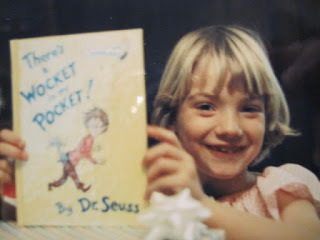
When I was a young voracious reader, I didn't even know the name of the authors of the books I loved best. That's because the books I loved best were MINE. I lived inside those stories. They weren't the author's or the publisher's or my parents' or teacher's. The author was invisible.
Every time I remember that younger me, the older (writer) me has an epiphany: It's Not About Me.
I've often shared at school visits and on panels that there are a number of qualities that you need to be a writer: 1) you need to be a little bit scrappy, a little bit competitive 2) you need to be able to get along with other people 3) you need to have thick skin.
And all of those things are true! But mostly, more important than anything, you need to get out of your own way. You need to realize you are a vessel, a conduit – not the water, not the electricity.
Our words, our stories, our books are the water and the electricity. That's where our focus should be.
Not on who got what award (and wah, I didn't!). Not on how many followers we have on Twitter or how many “likes” on Instagram. Not on book sales or contracts or advances or any of those outcomes.
We must focus on the act of creation itself – the morning pages, the idea notebook. All the false starts and fast, dirty first drafts. Focus on the story, and on giving the READER the story – not on becoming famous, but on becoming more invisible. So our readers can live inside our stories, too.
Working on it...
--------------
Irene Latham is a poet and novelist from Birmingham, Alabama. Her books for children include Leaving Gee's Bend, Don't Feed the Boy, Dear Wandering Wildebeest, and two new poetry collections When the Sun Shines On Antarctica and Fresh Delicious: Poems from the Farmers' Market will be released in 2016. From time to time, but not often enough, she borrows Harry Potter's invisibility cloak. irenelatham.com

When I was a young voracious reader, I didn't even know the name of the authors of the books I loved best. That's because the books I loved best were MINE. I lived inside those stories. They weren't the author's or the publisher's or my parents' or teacher's. The author was invisible.
Every time I remember that younger me, the older (writer) me has an epiphany: It's Not About Me.
I've often shared at school visits and on panels that there are a number of qualities that you need to be a writer: 1) you need to be a little bit scrappy, a little bit competitive 2) you need to be able to get along with other people 3) you need to have thick skin.
And all of those things are true! But mostly, more important than anything, you need to get out of your own way. You need to realize you are a vessel, a conduit – not the water, not the electricity.
Our words, our stories, our books are the water and the electricity. That's where our focus should be.
Not on who got what award (and wah, I didn't!). Not on how many followers we have on Twitter or how many “likes” on Instagram. Not on book sales or contracts or advances or any of those outcomes.
We must focus on the act of creation itself – the morning pages, the idea notebook. All the false starts and fast, dirty first drafts. Focus on the story, and on giving the READER the story – not on becoming famous, but on becoming more invisible. So our readers can live inside our stories, too.
Working on it...
--------------
Irene Latham is a poet and novelist from Birmingham, Alabama. Her books for children include Leaving Gee's Bend, Don't Feed the Boy, Dear Wandering Wildebeest, and two new poetry collections When the Sun Shines On Antarctica and Fresh Delicious: Poems from the Farmers' Market will be released in 2016. From time to time, but not often enough, she borrows Harry Potter's invisibility cloak. irenelatham.com
Published on January 03, 2016 03:30
January 1, 2016
The Quirky and the Cringeworthy by Ann Haywood Leal

Louis L’Amour said, “Ideas are everywhere. There are ideas enough in any daily newspaper to keep a man writing for years. Ideas are all about us, in the people we meet, the way we live, the way we travel, and how we think about things.”
Sure they are, Louis. But the trick is in getting them to emerge and swirl like a magic tornado into an idea. We all seek that moment – that epiphany – when the trickle of an idea turns into a story.
 I think the “idea” process is the part of writing that I love most. One thing that is important for me is to keep myself open to new ideas –not just at the brewing, beginning stages of a story or book, but throughout my writing. This is what rounds out my characters as I go, and what fills up my story, as a whole.
I think the “idea” process is the part of writing that I love most. One thing that is important for me is to keep myself open to new ideas –not just at the brewing, beginning stages of a story or book, but throughout my writing. This is what rounds out my characters as I go, and what fills up my story, as a whole. A lot of that is paying attention to the small nuances of life. I love to notice little quirks in strangers, and put them into my story. How do I know if they’re worthy of the story? They hang around in my head for a good while. It might be that phrase I can’t stop thinking about. That phrase might become a line for one of my characters, or even a first line for a new story. I might hear someone say something in a crowded coffee shop. It makes me wonder, or smile, or cringe, and I have to write it down. And when that happens to you, be sure to do that—write it down.
 You might notice a detail of a setting as you are out driving or walking. It stands out to you in some way—maybe you can completely picture your character there … so you try it. Write that setting or that setting detail into your story and see where it takes you. Maybe that small detail will blow up and become a beginning or create an epiphany that will take your book in a completely different direction.
You might notice a detail of a setting as you are out driving or walking. It stands out to you in some way—maybe you can completely picture your character there … so you try it. Write that setting or that setting detail into your story and see where it takes you. Maybe that small detail will blow up and become a beginning or create an epiphany that will take your book in a completely different direction.Happy New Year!
Published on January 01, 2016 22:00
SMACK DAB NEWS!
Holly Schindler's THE JUNCTION OF SUNSHINE AND LUCKY has made the master list for the 2016-2017 Mark Twain Readers Award!
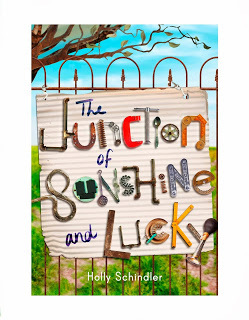

Published on January 01, 2016 05:00
December 25, 2015
HAPPY HOLIDAYS! (HOLLY SCHINDLER)
My readers all celebrate in a wild variety of ways--different holidays, different traditions. I imagine that my characters would all have their own unique observances as well:
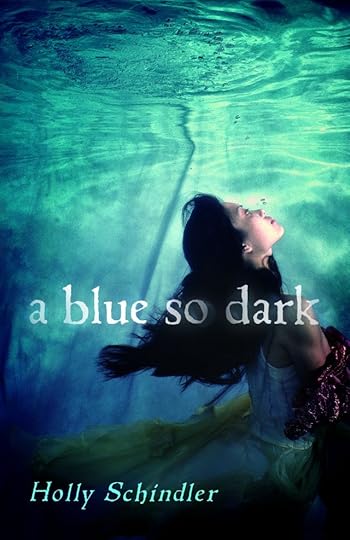
I know Aura, Nell, and Grace (from A BLUE SO DARK) would all be headed to a warm, sunny Florida Christmas, Aura and Grace with fresh sketch pads in their bags, ready to challenge each other to a sunrise drawing competition...

Chelsea and Clint (of the PLAYING HURT series) are gearing up for their own first Christmas together, at the quaint snow-blanketed Lake of the Woods resort. Their guests are few this time of year, so Clint and Chelsea have plenty of time to spend together--Clint's introducing Chelsea to ice fishing, and Chelsea's challenging Clint to finally give her yoga a try. Romantic nights are spent in front of a roaring fire in the main lodge...
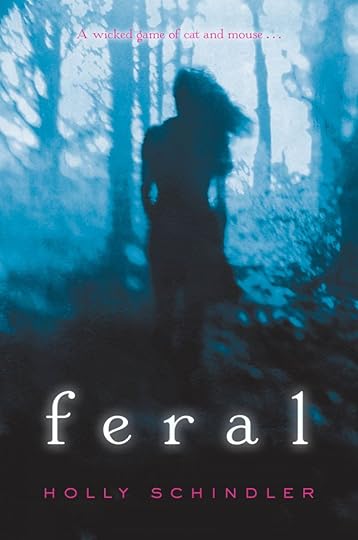
Claire and her father (from FERAL) will have a quiet celebration in Chicago, now that Dr. Cain is back from his sabbatical at the university. Rachelle, Claire's best friend, will stop by to exchange gifts with Clair and to share some holiday treats. Rich will be on his way from Peculiar to spend New Year's Eve with Claire as well...
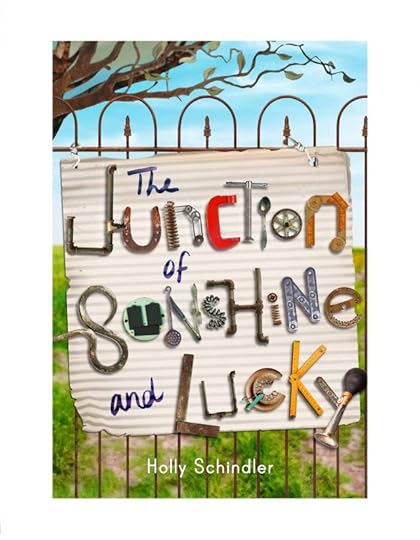
Auggie and Gus (from THE JUNCTION OF SUNSHINE AND LUCKY) are of course making each other creative gifts--no store-bought goodies for these two. And they're also in the midst of making Chuck, their minister, a fantastic new angel sculpture for the rebuilt community church...
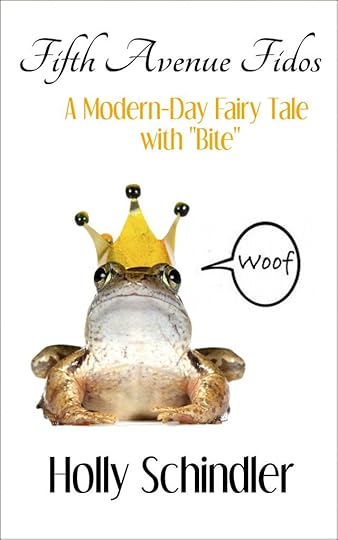
Innis (the Pekingese in FIFTH AVENUE FIDOS) is taking Mable and Jason on snowy walks through Central Park, merrily wagging his tail as Mable and Jason reach for each other's hands. They pause, letting fellow New Yorkers scratch Innis's head or compliment his new red and green sweater. And they all take time to marvel at the famed Fifth Avenue front window store displays...
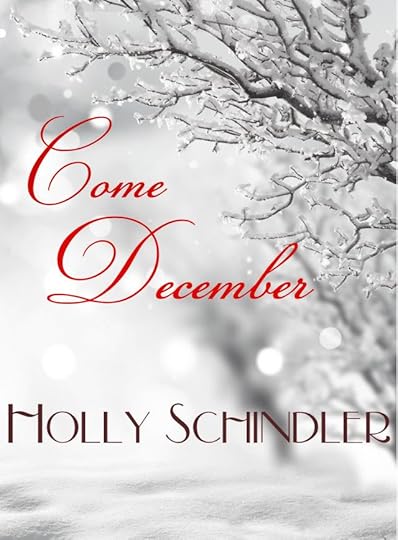
Natalie (from COME DECEMBER) is excitedly preparing her apartment to welcome the staff of Channel 27 News for an early, non-formal chili feast and gift exchange--mostly, she's preparing to spend the holiday with a new special someone...
At Casa Schindler, the celebration will include plenty of gifts and good food and usually a movie marathon (not to mention a dog walk or two).
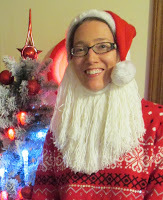 ...And of course, no holiday is complete without a few pics of family trees and goofy shots in fake beards and silly sweaters!
...And of course, no holiday is complete without a few pics of family trees and goofy shots in fake beards and silly sweaters!
 Check out the small tree leaning against the wall, to the right of the large one. It belongs to my dog Jake. Ya know--because ALL dogs deserve their own trees.
Check out the small tree leaning against the wall, to the right of the large one. It belongs to my dog Jake. Ya know--because ALL dogs deserve their own trees.
Happy holidays, all!

I know Aura, Nell, and Grace (from A BLUE SO DARK) would all be headed to a warm, sunny Florida Christmas, Aura and Grace with fresh sketch pads in their bags, ready to challenge each other to a sunrise drawing competition...

Chelsea and Clint (of the PLAYING HURT series) are gearing up for their own first Christmas together, at the quaint snow-blanketed Lake of the Woods resort. Their guests are few this time of year, so Clint and Chelsea have plenty of time to spend together--Clint's introducing Chelsea to ice fishing, and Chelsea's challenging Clint to finally give her yoga a try. Romantic nights are spent in front of a roaring fire in the main lodge...

Claire and her father (from FERAL) will have a quiet celebration in Chicago, now that Dr. Cain is back from his sabbatical at the university. Rachelle, Claire's best friend, will stop by to exchange gifts with Clair and to share some holiday treats. Rich will be on his way from Peculiar to spend New Year's Eve with Claire as well...

Auggie and Gus (from THE JUNCTION OF SUNSHINE AND LUCKY) are of course making each other creative gifts--no store-bought goodies for these two. And they're also in the midst of making Chuck, their minister, a fantastic new angel sculpture for the rebuilt community church...

Innis (the Pekingese in FIFTH AVENUE FIDOS) is taking Mable and Jason on snowy walks through Central Park, merrily wagging his tail as Mable and Jason reach for each other's hands. They pause, letting fellow New Yorkers scratch Innis's head or compliment his new red and green sweater. And they all take time to marvel at the famed Fifth Avenue front window store displays...

Natalie (from COME DECEMBER) is excitedly preparing her apartment to welcome the staff of Channel 27 News for an early, non-formal chili feast and gift exchange--mostly, she's preparing to spend the holiday with a new special someone...
At Casa Schindler, the celebration will include plenty of gifts and good food and usually a movie marathon (not to mention a dog walk or two).
 ...And of course, no holiday is complete without a few pics of family trees and goofy shots in fake beards and silly sweaters!
...And of course, no holiday is complete without a few pics of family trees and goofy shots in fake beards and silly sweaters! Check out the small tree leaning against the wall, to the right of the large one. It belongs to my dog Jake. Ya know--because ALL dogs deserve their own trees.
Check out the small tree leaning against the wall, to the right of the large one. It belongs to my dog Jake. Ya know--because ALL dogs deserve their own trees. Happy holidays, all!
Published on December 25, 2015 06:00



